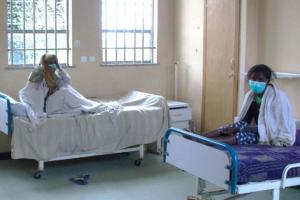Ethiopia launched new guideline for reaching missed tuberculosis cases
The Ethiopian Federal Ministry of Health, the National TB Program in collaboration with WHO and partners conducted a workshop from December 17 to 18, 2018 to launch a new guideline for reaching missed tuberculosis cases.
In her opening remark, Dr Lia Tadesse, State Minister of Health, noted TB is one of the priority diseases closely supported in the Ministry of Health and the Ministry continues to work very closely with partners, private sectors, civic societies, universities and other important stakeholders in order to identify missed TB cases, abort TB transmission to familiies, and public as well.
The new guideline on ‘Reaching Missed TB Cases in Ethiopia’ utilized the generic guidance on prioritization developed by WHO and STOP TB partnership. It assisted to identify specific key populations for TB, understand their vulnerabilities to TB and enable them to develop specific interventions to ensure key populations are reached with appropriate services.
Dr Ismael Hassen, National professional Officer for Tuberculosis, WHO Ethiopia, made a key note address on behalf of Dr Esther Aceng-Dokotum, Communicable Diseases Cluster Coordinator, and reiterated WHO’s commitment in providing a strategic support to the ministry of health in the fight against TB. He said “WHO will continue supporting the National TB Program in collaboration with partners, Regional health Bureau and other line Ministries to achieve the ambitious goal of Ending TB epidemic by 2035 and TB elimination by 2050.”
Ethiopia is one of the 30 High burden countries for tuberculosis including Drug resistant Tuberculosis. According to 2018 global TB report, 117,705 TB cases were reported in the country. The TB treatment coverage for Drug sensitive TB is 68%. And only 25% of Estimated RR MDR TB (Rifampicin Resistance and Multi Drug Resistance TB ) cases are detected and treated.
WHO is providing technical assistance to the Federal Ministry of Health and Regions through strengthening technical coordination platforms; adapting and revising guidelines, standards; promoting and supporting of evidence generation, dissemination including survey, and surveillances; monitoring of health trends and assisting the country to improve access to quality TB diagnosis, treatment and care.
Communicable Disease Cluster Coordinator
WHO Ethiopia
email: acenge [at] who.int
National professional Officer for Tuberculosis
WHO Ethiopia
email: endrisi [at] who.int
Nationa TB Program Manager
Ministry of Health Ethiopia
email: tayeletta [at] gmail.com

